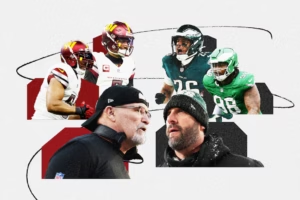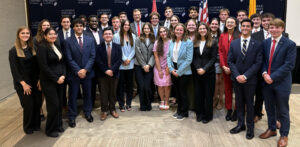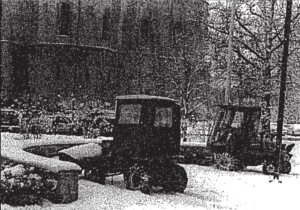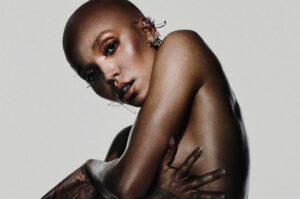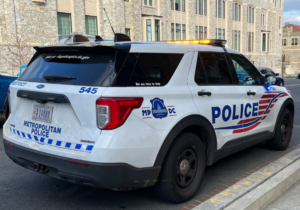What Happened at the First 2020 Presidential Debate?
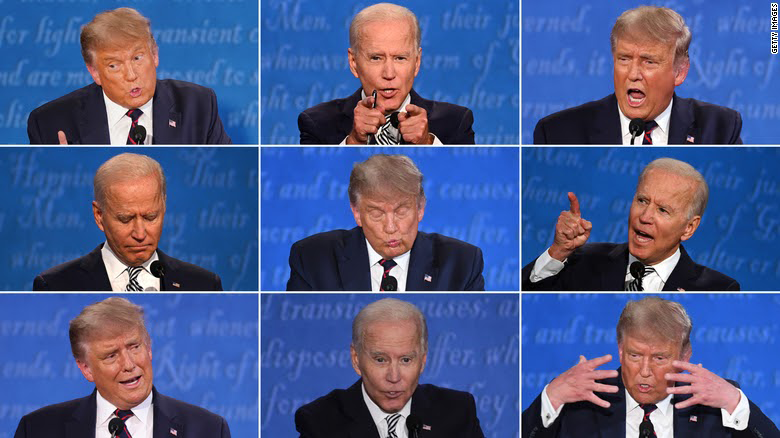
Image Courtesy of CNN
By Jeremy Perillo
The first presidential debate of the 2020 election season kicked off on Tuesday, September 29 with President Donald Trump and former Vice President Joe Biden facing off. One of the most anticipated, and surely one of the more important nights of the election season, offered a grueling, hyper-political debate laden with bickering between the two candidates.
Not long after its start, the debate quickly turned into a chaotic shouting match, where both candidates interrupted themselves, and the moderator, Fox News Channel veteran Chris Wallace.
Following each candidate’s initial response to Wallace’s question on the Supreme Court, President Trump pushed Biden on several points he made regarding Obamacare and questioned Biden on his healthcare plan, particularly on his public option. During Biden’s subsequent response, Trump began incessantly interrupting Biden, despite Wallace’s pleas to refrain from interrupting given the agreed-upon debating rules. And thus, the floodgates were open.
Before the debate, Trump and his allies had painted Biden as an incoherent and incompetent mess, insinuating that the 77-year-old will use performance-enhancing drugs to boost his performance. Trump’s strategy of constantly berating and interrupting his opponent was likely a debate tactic in order to throw Biden off his mark and cause him to fumble. This follows various comments and claims by Trump and his allies that Biden has dementia and is incompetent.
In tandem with the constant interruption and bickering, were the insults. While not a rarity for the president to insult his opponents, especially during debates, Biden also warmed up to insulting as the evening went on. At one point, while Trump was attempting to overtake Biden’s commentary, Biden remarked to the president, “will you shut up, man?” Biden additionally called the president a clown and accused him of being a racist.
Most of the candidate’s responses were either straight off of the campaign trail or were unintelligible as shouting drowned out any substance. However, of the takeaways noted by political commentators and viewers, President Trump’s reaction to a question on his far-right supporters drew an immediate reaction.
Chris Wallace asked Trump if he would condemn white supremacists, who often align as his supporters, and to which responded “Sure, I’m willing to do that.” Biden pushed President Trump to specifically condemn the far-right Proud Boys group, to which he responded “Proud Boys, stand back and stand by.” Trump did not specifically condemn white supremacy on the debate stage.
Republican Senator Tim Scott responded to the president’s comments, raising a potential concern on the president’s comments.
“I think he misspoke. I think he should correct it. If he doesn’t correct it, I guess he didn’t misspeak,” he said.
After severe backlash, and the utilization of the phrase “stand back and stand by” by the Proud Boys as a rallying cry, Trump addressed the issue a day after the debate.
“I don’t know who the Proud Boys are,” Trump said. “I can only say they have to stand down. Let law enforcement do their work.”
The nonpartisan Commission on Presidential Debates announced that the previous night’s face-off demonstrated the need for additional means of ensuring a more orderly discussion between the candidates.
“The Commission on Presidential Debates sponsors televised debates for the benefit of the American electorate. Last night’s debate made clear that additional structure should be added to the format of the remaining debates to ensure a more orderly discussion of the issues,” the commission’s statement said.
Additionally in their statement, the commission lauded Chris Wallace for his “professionalism and skill” throughout the debate. Further, it announced that specific alterations to the debating style will be announced soon.
Unfortunately for those undecided voters, and the general American public, who were desiring substantive policy positions that could help drive their vote, that was not apparent. While most Americans went into the debates with their minds already made up, roughly 6% of American voters are undecided. Instead of debating concepts and trying to convince the electorate of why they would be the best man for the job, a catfight ensued, bringing very little points of substance to the conversation.
The vice presidential debate will take place on Wednesday, October 7 at the University of Utah in Salt Lake City, Utah. Susan Page of USA Today will be the moderator. The election is roughly 30 days away.

